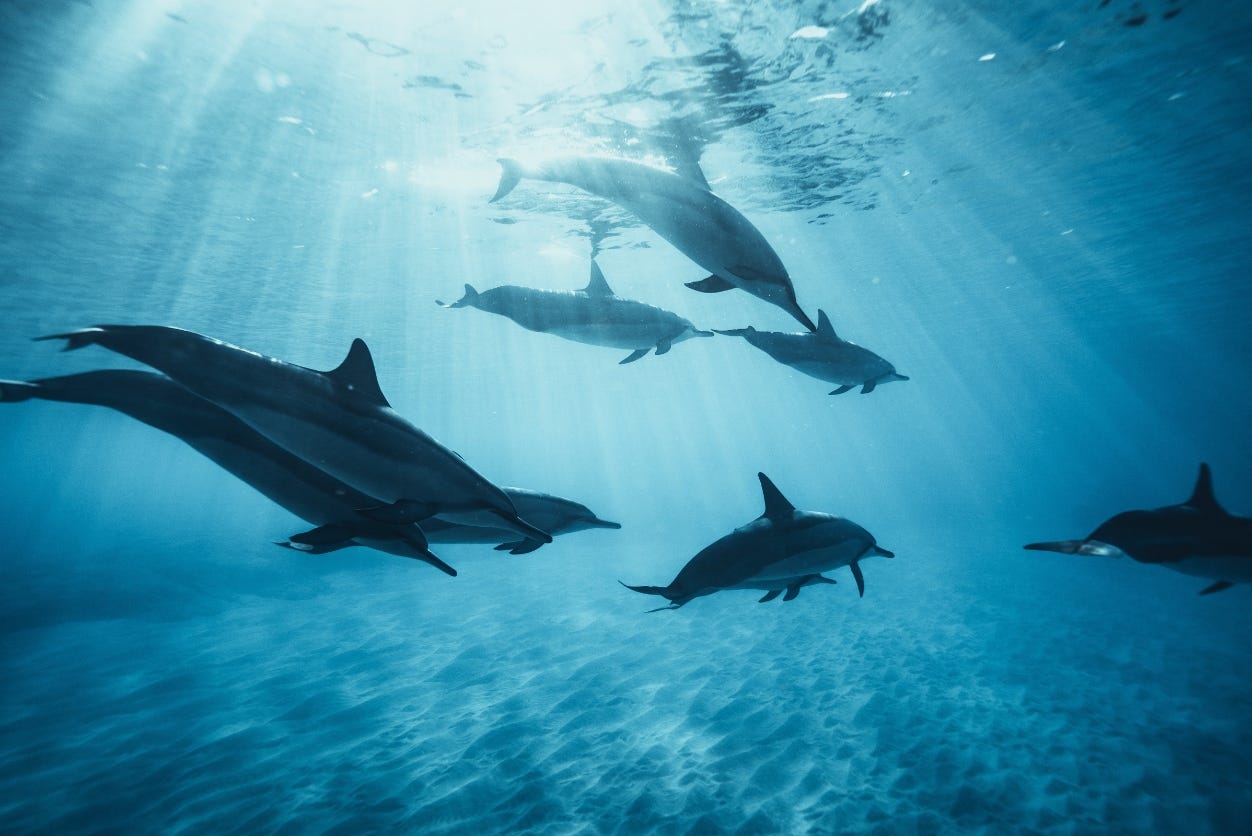It’s been a hot and hazy week here in Canada. With wildfires raging in Manitoba and Saskatchewan, the air quality has been terrible across much of the country — and in the U.S. as well. Wherever you’re reading from — especially if you’re at ground zero — I hope you’re staying safe and healthy.
These conditions are forcing us to experience climate change firsthand — and it’s natural to feel anxious. But we can’t give up hope. There are people around the world doing good work and making progress on climate and conservation. In this issue, you’ll learn about advancements in animal welfare, pollution reduction, sustainable agriculture, and biodiversity. Enjoy!
Canadian non-profit turning ghost gear into flowerpots
Ocean Legacy, a Canadian non-profit, is working to rid the ocean of ghost gear: discarded fishing gear and marine plastics. Ghost gear is a leading contributor to marine pollution, with 640,000 tonnes entering oceans annually in Canada alone. It can stay in the oceans for hundreds of years, where it entangles marine animals like whales, seals, sea lions, turtles and fish.
After organizing beach cleanups, Ocean Legacy distributes the ghost gear to one of their seven depots, which accept 11 types of materials. Through partnerships with companies like Legacy Plastic and Good World Materials, they recycle the plastic into products like planter pots, garden tools, furniture, and construction materials. So far Ocean Legacy has diverted at least 2.9 million pounds of ghost gear.
Mexico has banned captive breeding of marine mammals
On June 23, the Mexican Senate voted unanimously to ban marine mammal shows across the country. The decision comes after years of campaigning by activists, researchers, and concerned citizens. As an amendment to Mexico’s General Wildlife Law, the legislation is dubbed the “Mincho law” in honour of a dolphin named Mincho that was severely injured during a performance at a resort.
The law bans captive breeding of marine mammals (except for reintroduction into the wild), prohibits new dolphin shows, and requires humane care for the 350 dolphins still in captivity at 30 facilities nationwide. Enforcement efforts, led by Mexico’s Federal Attorney for Environmental Protection (Profepa), include inspections and fines, such as the 7.5 million pesos penalty imposed on the Barceló Maya dolphinarium earlier this year.
Colombia has established a protected territory for isolated Indigenous peoples
Colombia has established a 2.7 million-acre protected territory in the Amazon rainforest to safeguard the Yuri-Passé Indigenous Peoples, who live in voluntary isolation. The designation includes two zones. The "intangible zone," covering 2.3 million acres, prohibits direct or indirect contact to ensure that the Yuri-Passé can maintain their autonomy and cultural practices without interference. This area is surrounded by a buffer zone, meant to limit disturbances and prevent alterations to the ecosystem within the intangible zone.
This protected territory not only safeguards the Yuri-Passé but protects one of the most biodiverse places on Earth. The region boasts more than 600 species of wildlife, including threatened animals like the Oncilla, giant armadillo, and giant anteater. Neighbouring Indigenous communities will play a crucial role in monitoring the area and maintaining its strict protection measures. The initiative involved Colombia’s Ministry of the Interior, the Amazon Conservation Team, and international donors like the Andes Amazon Fund, fortifying Colombia’s commitment to protecting isolated indigenous groups and Amazonian ecosystems.
France’s guerrilla gardeners are supporting biodiversity and building community
In a quiet revolution across France, citizens are transforming neglected urban areas into thriving “guerrilla gardens.” Spearheaded by gardening advocate Ophélie Damblé, this grassroots movement has gained momentum. Locals plant flowers, vegetables, and herbs in unauthorized locations to provide fresh produce, support pollinators, and foster community.
Inspired by international efforts like those of Ron Finley in Los Angeles, the French guerrilla garden movement is gaining recognition from municipalities, some of which now offer permits for urban gardening initiatives. Damblé emphasizes strategic planning and community involvement, advocating for pollinator-friendly plants, raised beds, and seed bombs to overcome urban soil challenges. These guerrilla gardens illustrate the transformative power of citizen-led environmental action.
Quebec researchers aim to improve farmland with organic soil amendments
Quebec’s Montérégie region is known for its productive farmland, but it is losing its organic soil at an alarming rate. Researchers at Laval University are hoping to remedy that by using organic soil amendments like wood chips and straw. They are conducting extensive field trials to determine the ideal application rates for enhancing soil structure, water retention, and air circulation without causing nutrient competition between soil microbes and crops.
In addition to straw and wood chips, scientists are exploring the use of polyphenols —natural plant compounds — to reduce soil degradation by slowing down the activity of degradative enzymes. These investigations are part of a broader initiative to develop sustainable, scalable practices. Farmers in Quebec are already adopting these amendments, reporting improvements in soil quality and crop yields, while attracting interest from agricultural experts worldwide.



